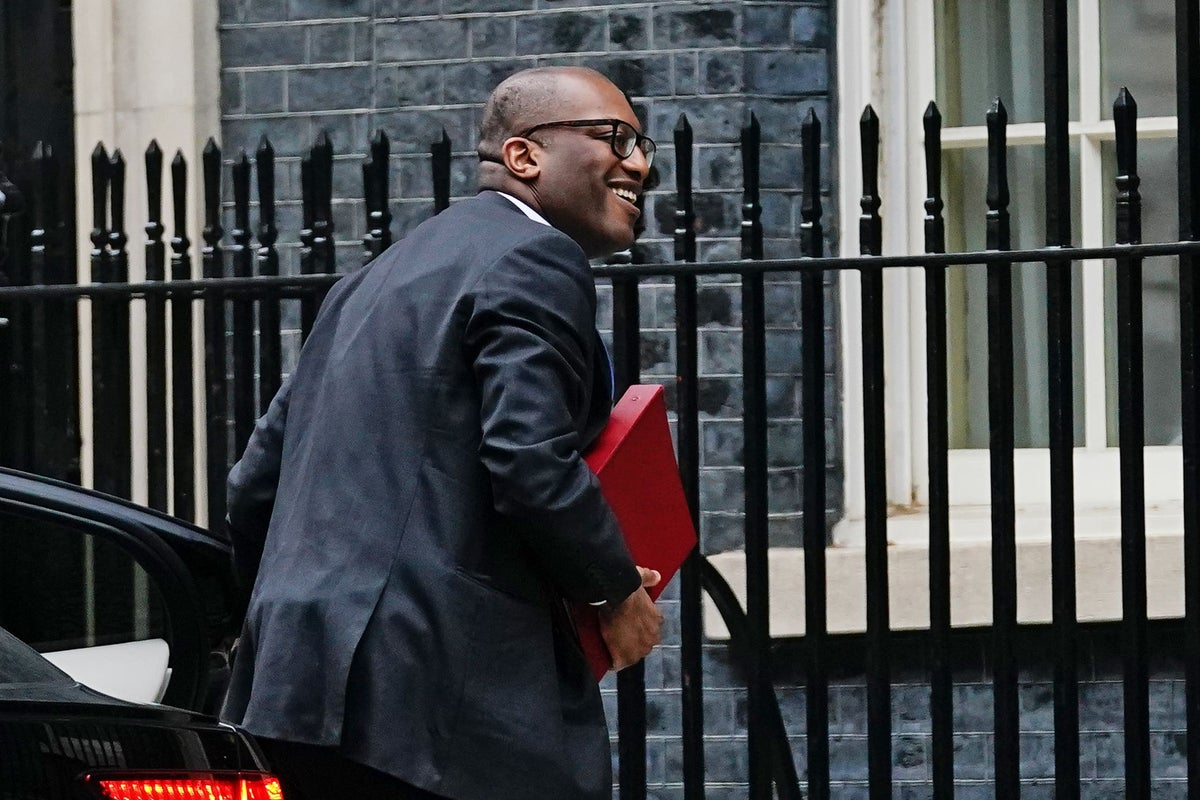
Delay in spelling out the goverment’s tax-and-spend plans could pile hundreds of pounds onto millions of people’s housing costs by making higher interest rates more likely, a senior Conservative MP has warned chancellor Kwasi Kwarteng.
The chair of the Commons Treasury Committee, Mel Stride, urged the chancellor to bring forward the 23 November statement on his medium-term fiscal plan - along with the OBR watchdog’s judgement on it - so that the Bank of England has time to assess market reaction before its next rate-setting meeting on 3 November.
A positive City reaction could persuade the Bank’s Monetary Policy Committee to dial down any rise in the base rate, which analysts believe could be up to half a percentage point. But continued uncertainty is likely to bake a "risk premium" into their decision.
And there was also a risk that the chancellor’s statement could provoke renewed panic on the markets, if he unveils unrealistic plans for slashing spending, or puts off for more than five years the point at which he expects debt to be falling as a percentage of GDP.
With around 1.6m mortgages with an average value of about £140,000 on variable tracker deals, and a further 300,000 coming off fixed-rate deals each month, a half-point rise adds about £700 a year to typical interest payments and significantly more to many.
"The fundamental core of this is about gaining the confidence of the markets and getting quickly to a position where the government can clearly demonstrate that it has a credible fiscal plan,” Mr Stride told The Independent.
“Much of that hinges on an Office for Budget Responsibility forecast alongside credible fiscal rules. We are promised a plan for 23 November. My strong view is that this has to come earlier.
“The markets are still febrile so any delay is a risk, not least for further upward pressure on bond rates and so mortgage costs and so on.
“Also the MPC is meeting on 3 November to set a new base rate and it would be highly beneficial for it to have the OBR forecast before then.” Mr Stride said that the OBR forecast will provide the MPC with fiscal data on issues such as government debt and tax revenues for the coming years which its members would otherwise effectively have to estimate for themselves.
Failure to publish before the 3 November meeting could “possibly and unhelpfully build in a larger risk premium around those estimates than would otherwise be necessary,” he said.
And he added: “Critically - and I think this is the main point - if the OBR forecast appears before the MPC meeting, and if it lands well with the markets, then there will be less uncertainty, less pressure on sterling and bond yields and that might then lead to the MPC deciding it can go with a lower, less painful, interest rate hike than would otherwise have been the case.”
Mr Stride said it was clear that the MPC was open to amending its decision according to the information available to it, after its nine members favoured different responses at last month’s rate-setting meeting.
The MPC agreed a half-point rise, lower than expected by many analysts, bringing the base rate to 2.25 per cent. But in a statement issued on 22 September, the bank revealed that five members voted for the 0.5-point rise, three for 0.75 and one for 0.25.
“At the last meeting, MPC members were split three ways on their rate decision,” said Mr Stride.
“So it’s not inconceivable that, with a new OBR forecast, their next decision could be tipped to lowering the rate increase by a meaningful amount.”
He added: “There are 8m households with mortgages, 1.6m of them on variable rates and 300,000 coming off fixed rates every quarter. That’s a lot of people who will be affected.
“But the Treasury’s plan and fiscal targets do need to be credible – it won’t have the desired effect and indeed could have the opposite effect if the fiscal targets are too far into the future or if the figures rely on, say, too big a squeeze to public spending, leaving the markets to conclude ‘It’s not going to happen, you won’t be able to deliver that’.”







